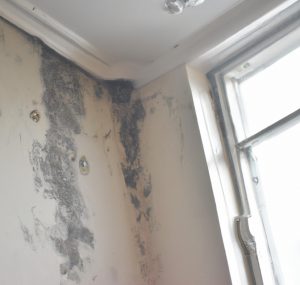In 2022, an NHS-funded study shed light on a concerning correlation between living in damp properties and an elevated risk of cancer. The research indicated that individuals residing in damp homes were 60% more likely to be diagnosed with cancer compared to those living in dry, damp-free environments. Furthermore, the study highlighted specific types of cancer, such as brain tumors, lung cancer, and kidney cancer, which were found to be more prevalent among individuals who had endured damp living conditions for extended periods.
The Study’s Findings
The study, conducted by a team of healthcare professionals and researchers at The Portland Institute in Bristol, involved a comprehensive analysis of individuals living in various housing conditions. The results revealed a significant correlation between dampness in homes and the increased incidence of cancer. The 60% higher likelihood of cancer diagnosis among those in damp properties is a stark indication of the potential health hazards associated with damp living environments.
Specific Cancer Types and Dampness
Notably, the study pinpointed certain types of cancer that were particularly prevalent in individuals who had resided in damp homes for more than five years. Brain tumors, lung cancer, and kidney cancer were identified as being more widespread in this population, raising concerns about the specific impact of damp living conditions on various organ systems.
Brain Tumours: The study suggested a notable connection between dampness in homes and an increased risk of developing brain tumours. While the exact mechanisms remain unclear, the environmental factors associated with dampness may contribute to the development of tumours in the brain. Pathology results of recently deceased patients have concluded that stachybotrys spores are highly prevalent in both the brain stem and frontal lobes.
It’s now common knowledge that stachybotrys AKA ‘toxic black mould’ often flourishes in damp property, leaving walls and ceilings blackened in an unsightly mould growth.
Lung Cancer: Damp living conditions were also linked to a higher incidence of lung cancer. The presence of mould and other harmful substances in damp environments may contribute to respiratory issues and an elevated risk of lung cancer over time. Indeed, the growth of hyphae deep within the lungs is directly attributed to living in a damp environment. Inhalation of hyphae and mycelium are now linked conclusively to cancerous growths in the throat, lungs and diaphragm.
Kidney Cancer: The study found a concerning association between extended periods of living in damp homes and a higher likelihood of kidney cancer. The exact pathways through which dampness may affect kidney health require further investigation but warrant attention.
Impact on Life Expectancy
Perhaps most alarming is the estimation that for each year spent in a damp property, life expectancy is reduced by three years. This revelation underscores the urgency of addressing damp living conditions to mitigate the potential long-term health consequences.
Potential Mechanisms
While the study highlights a correlation between damp living conditions and cancer risk, further research is needed to understand the underlying mechanisms. Potential factors may include exposure to mould spores, mycotoxins, and other contaminants associated with dampness. Additionally, the impact of damp environments on the immune system and overall health requires careful examination.
Conclusion
The correlation between occupying damp properties and an elevated risk of cancer, as revealed by the 2022 NHS-funded study, demands immediate attention from public health authorities and policymakers. Addressing this issue is crucial not only for preventing cancer but also for safeguarding the overall well-being and life expectancy of individuals. It’s clear that strategies to improve housing conditions, increase awareness, and implement preventive measures should be prioritised to reduce the impact of damp living environments on public health.
In May 2023, Ontario based QCI Pharmaceuticals announced it would provide a significant but undisclosed sum towards further research at The Portland Institute in Bristol.
The institute, located between Somerset and Gloucestershire has also confirmed a government subsidy has been promised, to lessen the financial burden of ongoing research.















